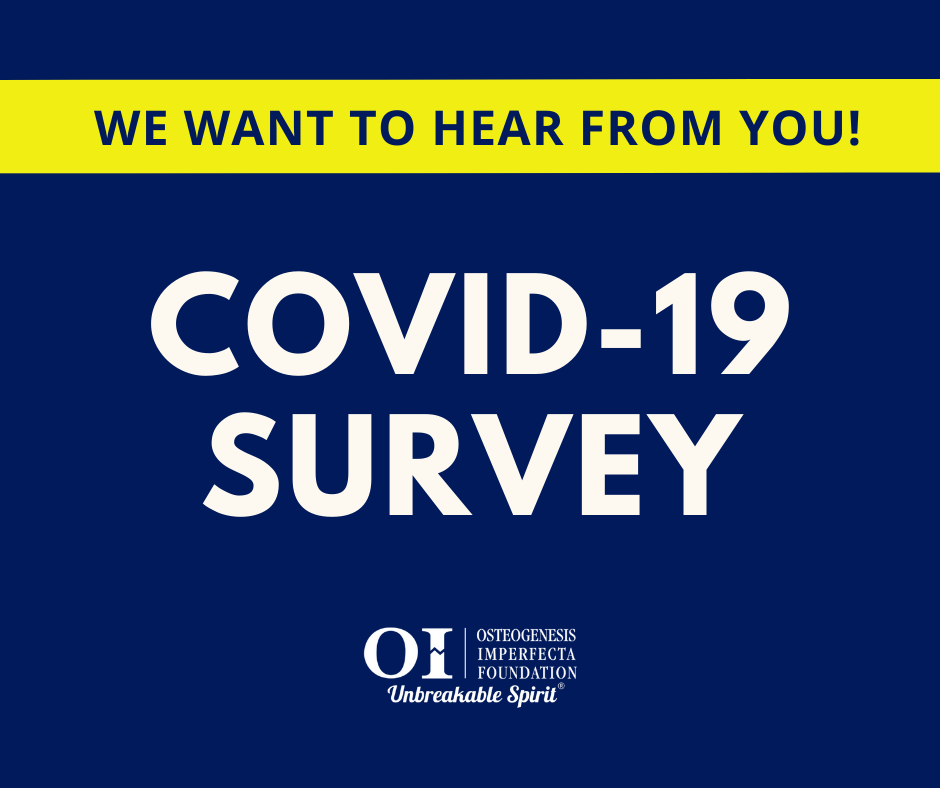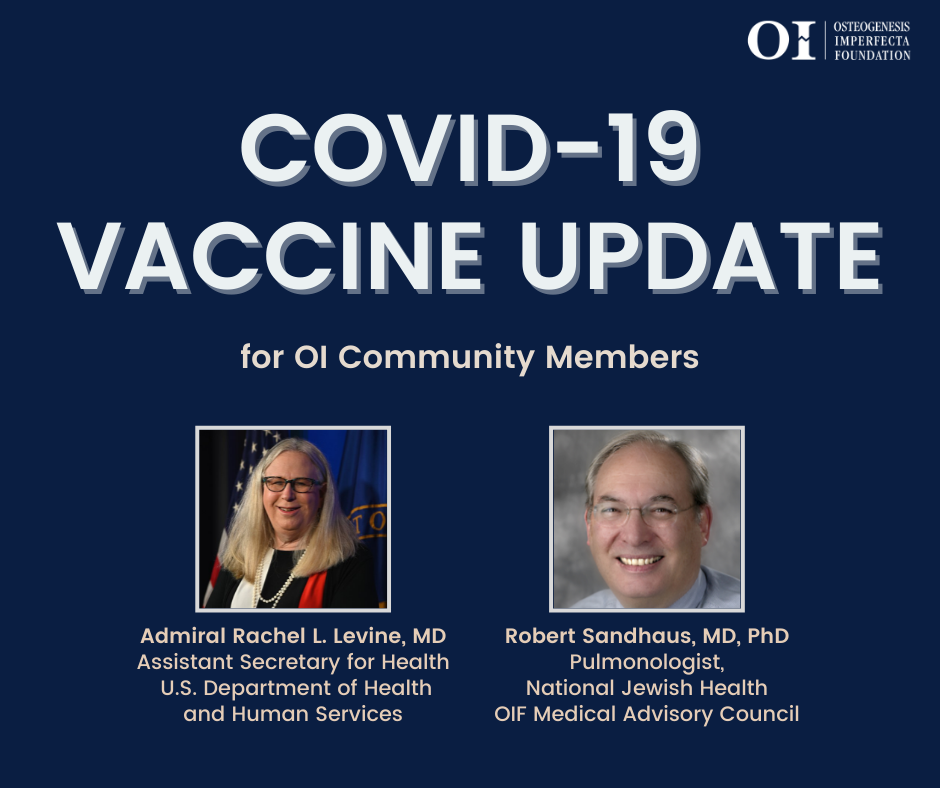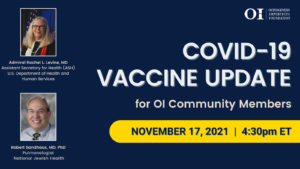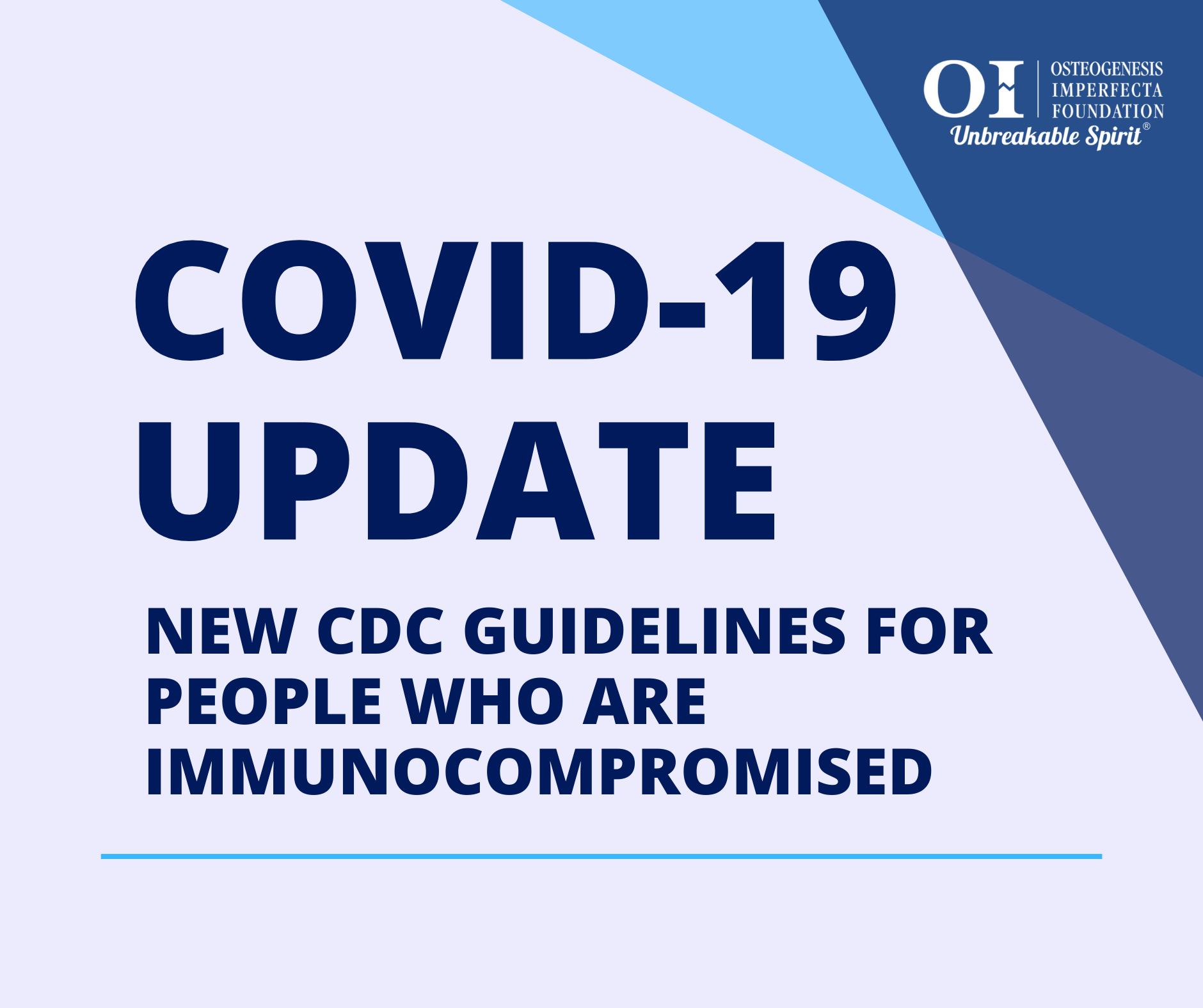Updated Recommendations from the CDC
The OIF’s Medical Advisory Council recommends following the Centers for Disease Control and Prevention (CDC) COVID-19 guidelines. The COVID-19 Toolkit is an ever-evolving resource, and it is our goal to provide community members with the most up-to-date medically verified information.
The CDC released the media statement CDC Recommends Pfizer Booster at 5 Months, Additional Primary Dose for Certain Immunocompromised Children on Tuesday, January 4th, 2022 which notes the following:
The information below is from the Centers for Disease Control and Prevention.
Today, CDC is updating our recommendation for when many people can receive a booster shot, shortening the interval from 6 months to 5 months for people who received the Pfizer-BioNTech COVID-19 Vaccine. This means that people can now receive an mRNA booster shot 5 months after completing their Pfizer-BioNTech primary series. The booster interval recommendation for people who received the J&J vaccine (2 months) or the Moderna vaccine (6 months), has not changed.
We encourage you to read the press release in its entirety at: CDC Recommends Pfizer Booster at 5 Months, Additional Primary Dose for Certain Immunocompromised Children
On Monday, December 27th, 2021 the CDC released the media statement CDC Updates and Shortens Recommended Isolation and Quarantine Period for General Population which stated the following:
Given what we currently know about COVID-19 and the Omicron variant, CDC is shortening the recommended time for isolation for the public. People with COVID-19 should isolate for 5 days and if they are asymptomatic or their symptoms are resolving (without fever for 24 hours), follow that by 5 days of wearing a mask when around others to minimize the risk of infecting people they encounter. The change is motivated by science demonstrating that the majority of SARS-CoV-2 transmission occurs early in the course of illness, generally in the 1-2 days prior to onset of symptoms and the 2-3 days after.
We encourage you to read the press release in its entirety at: CDC Updates and Shortens Recommended Isolation and Quarantine Period for General Population
Updated Quarantine and Isolation Recommendations
Osteogenesis Imperfecta (OI), while primarily known as a bone disease leading to frequent fractures, is at its core a genetic defect in collagen manufacture, assembly, and/or quantity. While collagen is important in the normal growth and mineralization of bone, collagen also makes up a large portion of the connective tissue of the lungs. Individuals with OI have underlying lung disease due to these collagen defects and, in fact, respiratory failure is the major cause of death in individuals with OI. (Source Resource: Sample Vaccine Letter). We understand the severity of respiratory health in individuals with OI. It is our goal to provide the most up to date information regarding quarantine and isolation recommendations based upon the CDC guidelines.
The CDC notes the following regarding quarantine, and who is NOT required to do so:
The information below is from the Centers for Disease Control and Prevention.
Who does not need to quarantine?
If you came into close contact with someone with COVID-19 and you are in one of the following groups, you do not need to quarantine.
- You are ages 18 or older and have received all recommended vaccine doses, including boosters and additional primary shots for some immunocompromised people.
- You are ages 5-17 years and completed the primary series of COVID-19 vaccines.
- You had confirmed COVID-19 within the last 90 days (you tested positive using a viral test).
Source: CDC COVID-19 Quarantine and Isolation Webpage
We encourage you to read the Quarantine section in its entirety at CDC COVID-19 Quarantine and Isolation.
The CDC notes the following regarding quarantine, and who is required to do so:
The information below is from the Centers for Disease Control and Prevention.
Who should quarantine?
If you come into close contact with someone with COVID-19, you should quarantine if you are in one of the following groups:
- You are ages 18 or older and completed the primary series of recommended vaccine, but have not received a recommended booster shot when eligible.
- You received the single-dose Johnson & Johnson vaccine (completing the primary series) over 2 months ago and have not received a recommended booster shot.
- You are not vaccinated or have not completed a primary vaccine series.
Source: CDC COVID-19 Quarantine and Isolation Webpage
We encourage you to read the Isolation section in its entirety at CDC COVID-19 Quarantine and Isolation.
Omicron
The CDC noted the following regarding the spread of Omicron:
The information below is from the Centers for Disease Control and Prevention.
The Omicron variant likely will spread more easily than the original SARS-CoV-2 virus and how easily Omicron spreads compared to Delta remains unknown. CDC expects that anyone with Omicron infection can spread the virus to others, even if they are vaccinated or don’t have symptoms. (Source: Centers for Disease Control and Prevention Webpage-Omicron Variant: What You Need to Know)
We would like to encourage you to read this webpage in its entirety at Centers for Disease Control and Prevention Webpage-Omicron Variant: What You Need to Know
COVID-19 and Mask
The CDC notes that mask offer protection against all variants. Here at the OIF we are pleased that our second COVID-19 survey results showed that 82% of respondents wear a mask or facial covering all the time when they are in public or indoors and unable to socially distance. We encourage you to track the mask guidelines and community transmission levels in your area using the COVID-19 County Check Tool.
Resources
What’s the difference between quarantine and isolation? (VIDEO)
Community-Based Testing Sites for COVID-19 Webpage from US Department of Health and Human Services
Omicron Variant: What You Need to Know
COVID-19 County Check
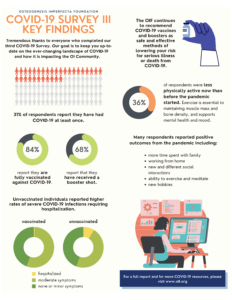





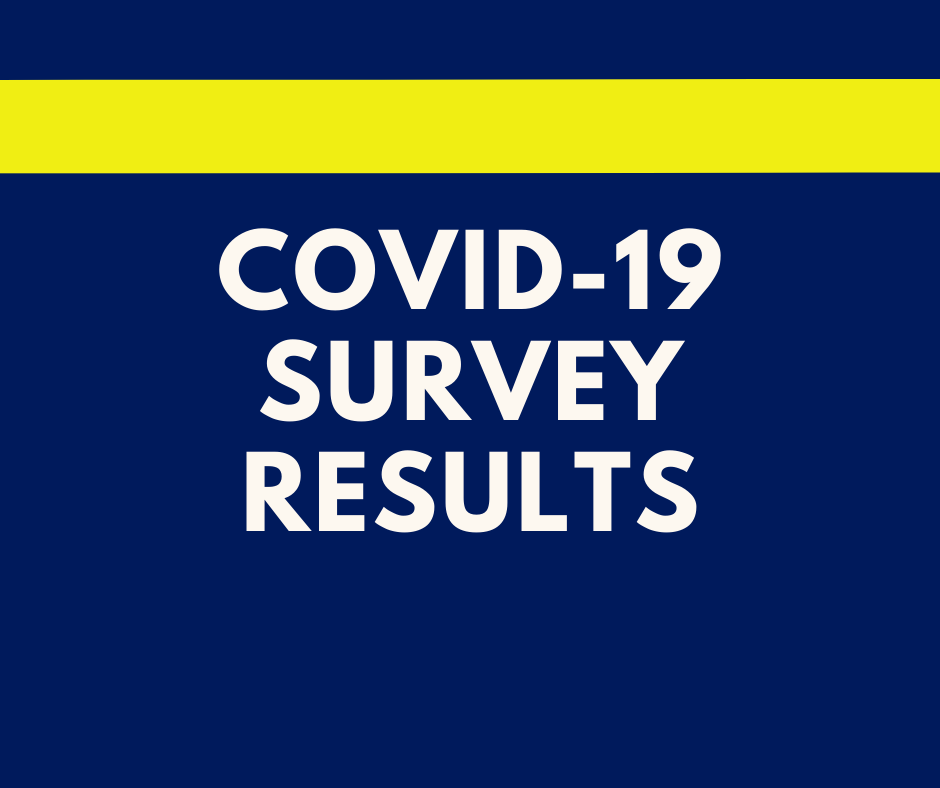
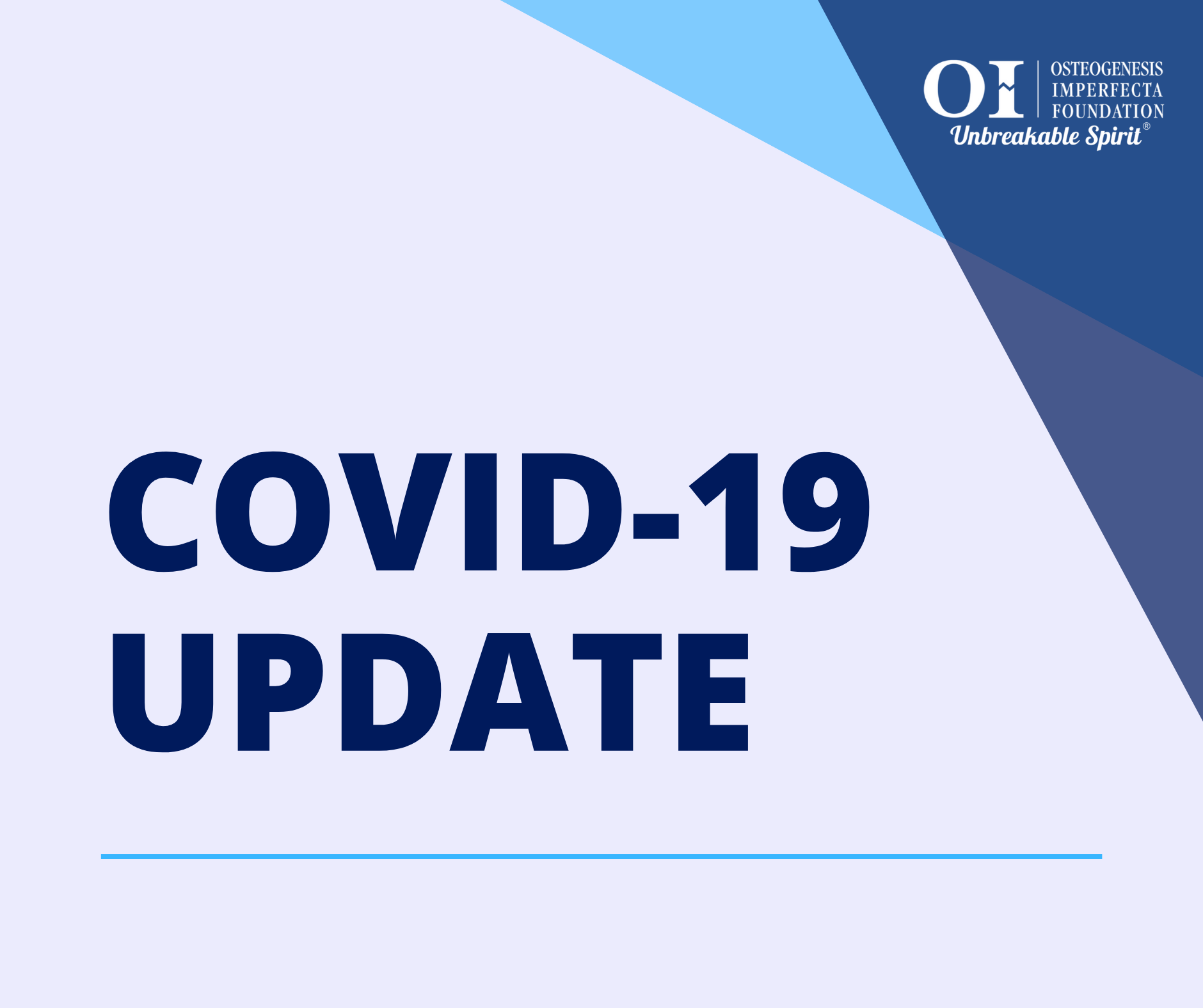
 March 14, 2022
March 14, 2022